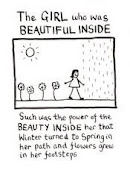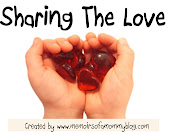While all of The Invitation made me think, there is one set of lines that I had to work at.
I want to know if you can
disappoint another
to be true to yourself.
If you can bear the accusation of betrayal
and not betray your own soul.
If you can be faithless
and therefore trustworthy.
While the idea of betraying a promise isn't new, the contrast in being "faithless and therefore trustworthy" was a bit hard. You don't usually think of them as going hand in hand comfortably. We are taught to keep our word and that would make us trustworthy.
After I had thought a bit I decided that I could compare this line to one I think is from Shakespeare," to thine own self be true, and it must follow, as the night the day, thou canst not then be false to any man." While I'm not really sure with Shakespeare's double negative in that I think the idea is right.
When I ran this by a friend he went back and reread the poem. Then he compared it to the "yes man" in business, "'yes' men are faithful, even as they lie to their bosses telling them what they want to hear."
Once I had accepted the idea of being faithless and trustworthy at the same time his words made sense. If that is a life lesson then it seems to have been easy to learn. They aren't always that way. Maybe the hard part is to put that into practice. It is hard to say no sometimes, especially to a friend. It can be scary saying no to a boss. If you lost your job would being able to look yourself in the mirror, not clench your teeth, and not tighten your gut as you prepared to go looking for a new job? I could, but I would have to deal with the dissatisfaction of losing my job too.
There is a new link in the photography section of my side bar. It is labeled "Lens Culture." Interesting website with lots of good photos. Enjoy!
Tuesday, March 06, 2007
Thoughts and a new link
Labels:
love of self,
new links,
self-definition
Subscribe to:
Post Comments (Atom)


















6 comments:
Lee:
Interesting that you came back to these lines; they were the lines that I felt held the deepest truth, when I first saw them.
While I do not disagree with your final take on the lines, what seemed true (for me) was the idea of letting them lie right where there were, in the territory of "treachery" itself. Knowing our own darknesses, owning them, being able to face up to these aspects/shadows, fleshes us out, makes us more real, makes us - I would argue - "trustworthy."
Many of us make decisions that will hurt others, people in no way "deserving" of hurt, but in the human balancing act of sorting through our callings and our loves for others, we may hurt them nonetheless. I have disappointed, I have betrayed, and I have been faithless. It is nothing I need be proud of, but it is also something I feel I need to "embrace" about the history of who I am, as much as I might embrace my brighter, shinier facets.
Thanks for putting these lines out here for all of us to ponder. Peace.
Hi Murat,
Thanks for stopping by and taking time to comment.
I don't disagree with your take either. We do need to be able to embrace our darker selves. If knowing our darkness and embracing it allows us to be truer to ourselves, then the trustworthiness of your statement holds. If on the other hand we don't want or hate that part of ourselves, and try to hide from it and hide it from others, we will be far from trustworthy.
Not everyone is comfortable with their own darkness. I think it is a sign of maturity and self awareness when you are. But I think you have to reach a point first where you have the inner fortitude to face it. Not everyone does. Perhaps that is part and parcel of the loving yourself before you can love others. Surely if we hate the darkness within us we won't be able to love it in others.
As you became better at embracing the darkness within, how did it change your relations with others?
Peace!
I don't think you have to love or hate the darkness within - I do think you have to recognize it, account for it, understand it.
It's like arguing, how do we know what love is, and replying, because we know what evil is.
Yin and Yang. To have one you need the other.
To know "resurrection" you need to know the "darkness" from which you are rising from.
Hi JSD. Admittedly, I tend to look at extremes and absolutes. Maybe it's impossible to love the darkness within. It's certainly possible to hate it. That seems to lead to self loathing. So while loving something that is dark is difficult, I am in favor of at least accepting. I think it is the accepting and even the loving that starts to heal that darkness. Does that tie in with your meaning?
Murat has talked about the radiance of darkness. I'd like to know if that ties into this because I don't know enough about that view or aspect of darkness. That seemed to imply that the darkness stays. But I might be mixing metaphors.
Peace!
I don't think darkness leaves our "beings". To me that'd be like rejecting yourself and your experiences. I think if you can accept that piece of yourself then that leads to healing, and when you begin to heal it gives you a perspective one needs to move on; otherwise, it can become a trap.
How one does "that" is part of the journey. Healing and acceptance and love are things other people can show you and talk about their experiences thereof, but ultimately it is something each person has to figure out for themselves.
Yes, I think I liken the healing to bringing in the light. I totally agree with your finding perspectives and moving on. Granted, somethings are harder to move on from than others which can make being able to do so more meaningful.
Peace!
Post a Comment